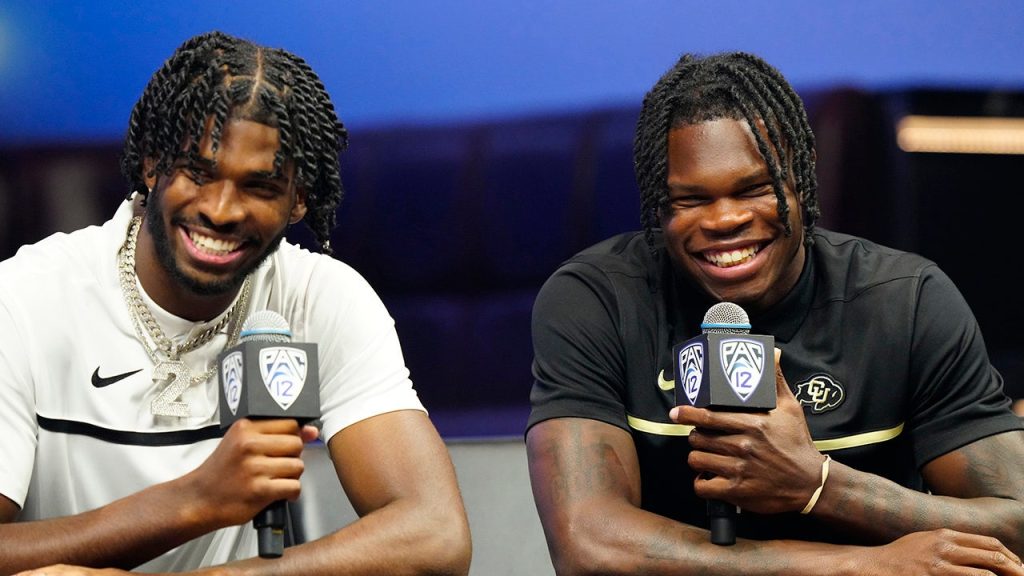The triumphant Heisman Trophy win for Colorado’s two-way football star, Travis Hunter, on December 14, 2024, was swiftly overshadowed by a wave of public scrutiny directed at his fiancée, Leanna Lenee. Videos circulating online capturing Lenee’s behavior during and after the award ceremony ignited a social media firestorm, with critics dissecting her reactions and questioning her support for Hunter. The controversy escalated, drawing in Hunter’s teammate, quarterback Shedeur Sanders, who publicly called out the online commentary, suggesting that much of it was driven by a desire for attention and algorithm engagement rather than genuine concern for Hunter’s well-being.
The videos that fueled the controversy captured seemingly innocuous moments, yet were interpreted by some as indicative of indifference or displeasure. One video showed Lenee remaining seated momentarily after Hunter’s name was announced as the Heisman winner, prompting Colorado head coach Deion Sanders to seemingly gesture for her to stand. Lenee did eventually embrace Hunter, but quickly returned to her seat amidst the applause. Another video, taken at a subsequent event in New York City, showed Lenee seated while Hunter interacted with fans, further fueling speculation about her demeanor. Social media users analyzed her expressions and body language, offering unsolicited interpretations of her emotional state.
The intense public scrutiny took a toll on Lenee, who later revealed in a TikTok video that the online commentary had deeply affected her, causing her distress and leading her to address the situation directly. She clarified her actions and refuted some of the narratives circulating online, attempting to reclaim her narrative amidst the swirling speculation. Hunter, too, addressed the situation, expressing his support for his fiancée during a Twitch livestream. He highlighted the longevity of their relationship, emphasizing their deep understanding of each other and dismissing the online criticism as uninformed and superficial. He shared Lenee’s emotional distress, revealing that she had been deeply hurt by the online backlash.
Shedeur Sanders’ intervention added another layer to the unfolding narrative. Recognizing the escalating situation and the potential impact on his teammate, Sanders took to social media to defend Hunter and Lenee, calling out the perceived performative nature of much of the online commentary. He suggested that those genuinely interested in connecting with Hunter should do so through proper channels rather than using public platforms to generate attention. His message underscored the importance of respecting personal boundaries and recognizing the potential harm of unchecked online speculation.
The controversy surrounding Lenee’s behavior highlights the complexities of navigating public life in the age of social media. Seemingly insignificant moments can be amplified and scrutinized, leading to misinterpretations and unwarranted criticism. The incident also raises questions about the public’s entitlement to dissect the private lives of public figures, particularly their relationships. The pressure to conform to perceived societal expectations can be immense, and the constant surveillance of social media can create a climate of fear and anxiety, especially for those in the spotlight.
In the aftermath of the controversy, Hunter deactivated his Instagram account, a move that further emphasized the toll the online scrutiny had taken on him and his fiancée. While the reasons for his decision remain private, the action speaks volumes about the challenges of maintaining privacy and mental well-being in the face of unrelenting public attention. Despite the controversy, Hunter remained focused on his football career, preparing for the Alamo Bowl game against BYU, demonstrating his commitment to his team and his sport amidst personal challenges. The incident serves as a reminder of the human cost of online scrutiny and the importance of responsible engagement with public figures.

